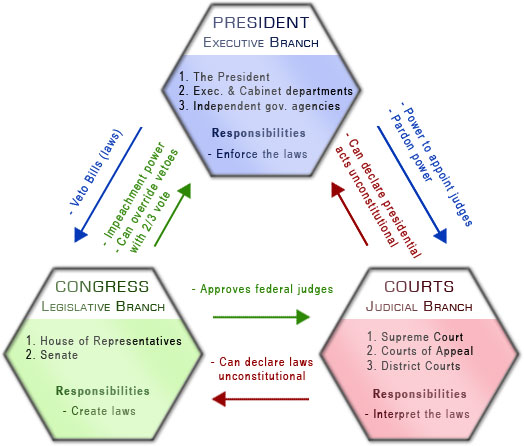Mexico City, Mexico —(Map)
On Sunday, Mexico held a historic election in which voters chose all of the country’s judges for the first time ever. This is a huge change for Mexico. The results won’t be announced for a while, but the election will change Mexico’s court system for years to come.

(Source: EneasMx [CC BY 4.0], via Wikimedia Commons.)
Mexico’s government has three main parts: Congress, which makes the laws; the president, who’s responsible for carrying out the laws; and the courts – often called “the judicial branch”. The courts make sure that laws are followed, and decide what happens when laws are broken. These three parts are meant to balance the powers of government, so that no branch becomes too powerful.
In the past, judges in Mexico have always been appointed by politicians like the president or state governors. But last year, Mexico’s government changed the rules so that judges would be chosen by voters. The change upset a lot of people.

(Source: By Viva La France!, via Wikimedia Commons.)
Mexico’s president at the time, Andrés Manuel López Obrador, was unhappy because the country’s Supreme Court had stopped many of his plans. Mr. López Obrador was able to push the idea through, since his political party, Morena, had almost complete control of Congress.
Many people agree that there are serious problems with Mexico’s court system, including corruption and too much influence from criminal gangs. Mexico’s current president, Claudia Sheinbaum, who’s also from the ruling Moreno party, believes the new system will cut down on these problems.
But some people believe the new system gives criminals a new way of getting power. Some of the people running to be judges have spent time in jail. Others have strong ties to gangs.
😕
This image has not been loaded because of your cookie choices. To view the content, you can accept 'Non-necessary' cookies.
The previous Mexican President, Andrés Manuel López Obrador, was able to pass the idea of voting for judges, since his party, Morena, controlled Congress. Mexico’s current president, Claudia Sheinbaum – also from the Moreno party – thinks the change will improve the court system. Above, Ms. Sheinbaum voting on Sunday.
Usually, judges appointed by politicians have training, experience, and a strong understanding of how the law works. But voters may not realize what skills are important for judges to have. Also, when judges know they have to be elected, they may be tempted to make decisions that are popular, rather than fair.
Some countries already have elected judges, either at a local or national level. But Mexico is the first country where all the judges are elected.
On Sunday, that meant that Mexico’s voters had to fill over 2,600 different positions in the judicial branch. There were roughly 7,700 people running for these positions. Candidates weren’t allowed to advertise on radio or TV, and they weren’t allowed to tell voters their political party.
😕
This image has not been loaded because of your cookie choices. To view the content, you can accept 'Non-necessary' cookies.
Mexico’s voters had to fill over 2,600 different positions in the judicial branch. Roughly 7,700 people were running for the positions. That left people very confused. Voters had to fill out six different ballots, and some voters had to vote for over 100 positions. Above, some of the ballots from Sunday’s election.
That left people very confused. Voters had to fill out six or more different ballots, and some voters had to choose people for over 100 positions. As one person told The Guardian, “It looks like an exam.” There were reports that the ruling party, Morena, gave voters “cheatsheets” that told them who they should vote for.
Though the election represents a huge change for the country, only 13% of the country’s voters took part. Many people may not have even known the election was happening.
It will take a while to count the votes and determine the winners. But one thing is clear: the results will have a big effect on Mexico’s courts, and the people in charge of them.
😕
This map has not been loaded because of your cookie choices. To view the content, you can accept 'Non-necessary' cookies.
